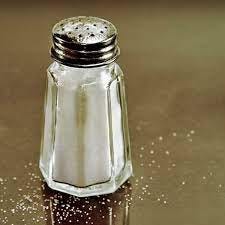This week we find ourselves beginning the 3rd book of the Torah, Vayikra, which delves into tremendous details around the sacrificial system. To understand a piece of minutia here, let’s go back to the beginning of the Torah and creation. Part of that creation involved the separation of the waters.
At the time at which the world was being created, there was no separation between the lower waters, what we call oceans, lakes, and the like, and the upper waters, the bodies of water belonging to the celestial realm. In order to create a fitting setting for humanity, God needed to create a separation of the two because, you know, we’ve yet to come up with a way to breathe underwater without assistance.
When that happened, the lower waters felt slighted. “What the hell” they argued, the upper waters get to hang with you and we’re stuck here in this lowly place with these imperfect creatures?!”1 It’s a fair gripe, right? In response to this, a promise was made by God to the waters. One day, you’ll see, the whole of the people Israel will need you to fulfill their most holy duties.
It is that promise we see come to fruition in this week’s portion we are told in Leviticus 2:13:
וְכׇל־קׇרְבַּ֣ן מִנְחָתְךָ֮ בַּמֶּ֣לַח תִּמְלָח֒ וְלֹ֣א תַשְׁבִּ֗ית מֶ֚לַח בְּרִ֣ית אֱלֹהֶ֔יךָ מֵעַ֖ל מִנְחָתֶ֑ךָ עַ֥ל כׇּל־קׇרְבָּנְךָ֖ תַּקְרִ֥יב מֶֽלַח׃ {ס}
You shall season your every offering of meal with salt; you shall not omit from your meal offering the salt of your covenant with God; with all your offerings you must offer salt.
Don’t tell your cardiologist. That’s a lot of salt. So much so that it makes us wonder, is the Torah hinting something to us here? The Torah is economic in its language so when it repeats words, it means something. Here is one potential answer from the Maharal of Prague2:
ועוד יש בזה דברים נפלאים, כי הדברים אשר נדחים למטה הם מבקשים להתעלות יותר, וזה שרמזו בכמה מקומות 'ללמדך שכל המשפיל עצמו הקדוש ברוך הוא מגביהו', ולפיכך אל כל הנמצאים תחת שפלות יותר מדאי – יבוא להם מעלה עליונה. ולפיכך, לפי שהובדלו המים להיות תחתון – הובטחו שיעלו במזבח, ואין להאריך
There is something wondrous contained here. Things that are pushed off to the lower realms are always striving to rise back up. This is hinted to us multiple times to teach us that anyone who lowers themselves the Holy One will raise them up. Therefore, for anyone who finds themselves in overwhelming lowliness they should remind themselves that elevation will come because after all, when the lower waters were made lowly, they were also promised that they would ascend on the altar.
So, you see, this beat-you-over-the-head salt verse is a fulfillment of God’s promise to these early waters. After all, salt is the major component in our bodies of water. That salt then becomes an integral part of our connection to God vis a vis the sacrifices. And not just some sacrifices, “ כׇּל־קׇרְבָּנְךָ֖” all of your sacrifices require salt.
This teaching alludes to two deeply important principles in my life. One and this is for another post, there is always room for hope, even when you are at your lowliest. The other is the power of delayed gratification, which from an early age, my mother instilled within me. Whether it was in the form of awaiting some delicious food, a gift, or the long journey of education, learning to persevere in the short term could pay dividends in the long run.
Scientists have long studied the power of delayed gratification, perhaps most famously in the marshmallow experiment of 1972. Many of the subsequent studies around it center around the ways in which struggles with delayed gratification lead to challenges with obesity, drug use, and risky sexual behavior. The piece that jumps out to me about these studies and this piece of text is the resilience that we can build up through cultivating practices of delayed gratification.
Salt is inanimate of course but think of the lesson the Rabbis embed within it. From creation to the sacrifices was a generational wait. The pain was real. But see what happened in the long run. The method through which every Jew of the time got to connect with God only happened because of the salt.
That is, I think, a useful reminder for us. Often the thing right in front of us is shiny and pleasing but ultimately fleeting. If we can teach ourselves to hold off. If we can remind ourselves that planting a seed and letting it grow will result in more beauty. If we can be like salt, patiently waiting for our time to shine, who knows what impact we might have?
Shabbat Shalom and Happy Weekend
My glib, loose and imperfect translation
16th century




By the way, remember that funeral you helped me with? It was the psychologist behind the marshmallow test!